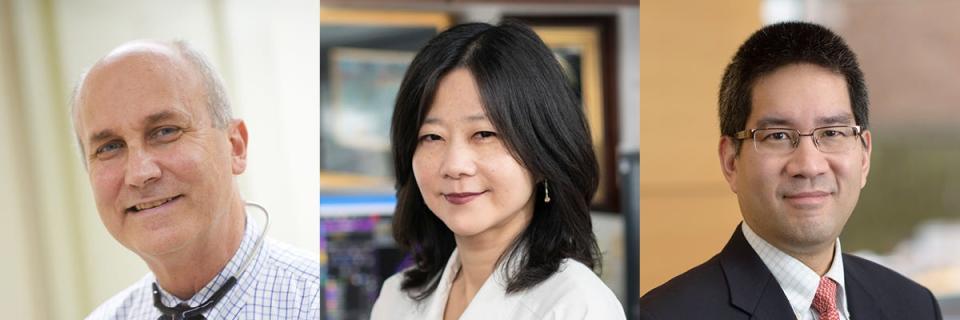HPV vaccines prevent cancer, but doses decline amid pandemic
As millions of kids head back to school full time this fall – in many cases for the first time in 18 months – parents undoubtedly have concerns about their children’s health and well-being. As medical professionals, we have a message to share: It’s time to vaccinate your children who are eligible … and not just against COVID-19.
The effects of COVID-19 go far beyond the virus itself. Not only has COVID-19 caused millions of infections and deaths over the past year and a half, there also has been a substantial reduction in routine and preventative care for both children and adults – including falling vaccination rates for other dangerous illnesses.
As a result of the decline in routine wellness visits due to the pandemic, Memorial Sloan Kettering Cancer Center estimates that since March 2020, adolescents with public insurance have missed an estimated one million doses of the HPV vaccine – a vaccine that has been proven effective at preventing 90 percent of HPV-related cancers. The decline in HPV vaccinations, a nearly 21 percent dip over pre-pandemic levels, is a major cause for concern among physicians and other healthcare providers. We strongly encourage parents and caregivers to contact their child’s healthcare provider to discuss the importance of the HPV vaccine and create a plan to have their children vaccinated, based on established guidelines.
My journey with cancer: I hate pain. I hate the meds. I hate the incremental death.
Reversing this downtrend is critical: the CDC estimates that HPV causes over 20,000 cases of cancer among women each year, and more than 11,000 cases among men. In addition to preventing most HPV-related cancers, the HPV vaccine is also considered one of the safest and best tolerated vaccines available today.
USA TODAY Opinion newsletter: Subscribe for insights, analysis in your inbox
The HPV vaccine is recommended for routine vaccination at age 11 or 12 years. While we understand some parents may be wary of vaccinating their children against a virus linked to sexual activity, there is strong data to support the vaccine’s long-term effectiveness. Research also shows that expanding HPV vaccination rates could ultimately relegate HPV and related cancers to the same sort of threat as smallpox is today: Something most people no longer worry about.
At Memorial Sloan Kettering Cancer Center, we are deeply committed to learning as much as we can about HPV-related cancers and sharing our expertise so we can provide a level of defense to go alongside the vaccine. This includes exploring how best to treat those cancers and providing helpful information about the vaccine itself – an important way to debunk common myths that have emerged over the years.
A time to work and a time to grieve: Mourning is its own kind of labor.

While we are proud to help lead the way when it comes to researching and treating these cancers, the most effective treatment is never needing treatment in the first place. For this reason alone, we strongly urge parents and caregivers to vaccinate their children.
If there ever was a time to protect ourselves and our loved ones from preventable diseases and, potentially, cancer, this is it.
Nancy Y. Lee, MD, FASTRO, is a Radiation Oncologist and Vice Chair, Department of Radiation Oncology; Service Chief, Head & Neck Radiation Oncology; and Service Chief, Proton Therapy at Memorial Sloan Kettering Cancer Center.
David G. Pfister, MD, is a Medical Oncologist and Chief, Head and Neck Oncology Service; and Associate Deputy Physician-in-Chief, Strategic Partnerships at Memorial Sloan Kettering Cancer Center.
Richard J. Wong, MD, FACS, is a Surgeon and Chief, Head and Neck Service at Memorial Sloan Kettering Cancer Center.
You can read diverse opinions from our Board of Contributors and other writers on the Opinion front page, on Twitter @usatodayopinion and in our daily Opinion newsletter. To respond to a column, submit a comment to letters@usatoday.com.
This article originally appeared on USA TODAY: HPV vaccine doses for kids slip as wellness visits fall during COVID

 Yahoo Movies
Yahoo Movies 
